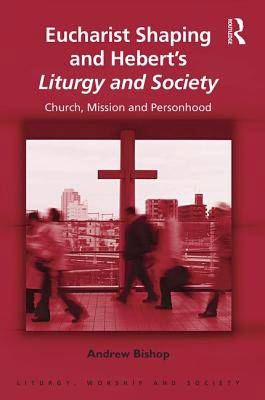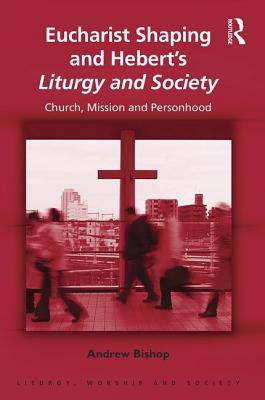
- Retrait gratuit dans votre magasin Club
- 7.000.000 titres dans notre catalogue
- Payer en toute sécurité
- Toujours un magasin près de chez vous
- Retrait gratuit dans votre magasin Club
- 7.000.0000 titres dans notre catalogue
- Payer en toute sécurité
- Toujours un magasin près de chez vous
Description
The contemporary Church of England is wrestling with issues around the relationship between its worship and mission and relating both to wider society. Much of this hinges on an understanding of the nature of the Church. Gabriel Hebert's seminal book Liturgy and Society (1935) took as its subtitle, "The Function of the Church in the Modern World". For many this book inspired engagement with Eucharistic worship, with new patterns emerging, paving the way for further liturgical reform in the second half of the twentieth century. Eucharist Shaping and Hebert's Liturgy and Society re-examines Hebert's work, doing so uniquely in the light of the current dialogue about Church, liturgy and mission. Andrew Bishop argues that Hebert's contribution has been overlooked latterly and that a re-appreciation opens up fruitful ways of thinking and acting, making this book a distinctive contribution to a lively debate. If the options are reaction or novelty, Eucharist Shaping and Hebert's Liturgy and Society shows how Hebert's thinking subtly undermines both.
Spécifications
Parties prenantes
- Auteur(s) :
- Editeur:
Contenu
- Nombre de pages :
- 176
- Langue:
- Anglais
- Collection :
Caractéristiques
- EAN:
- 9781472463289
- Date de parution :
- 15-04-16
- Format:
- Livre relié
- Format numérique:
- Genaaid
- Dimensions :
- 157 mm x 234 mm
- Poids :
- 385 g

Les avis
Nous publions uniquement les avis qui respectent les conditions requises. Consultez nos conditions pour les avis.






